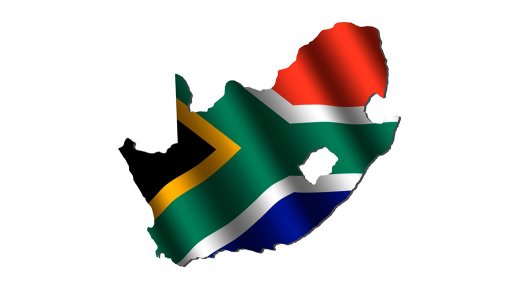
Ladies and Gentlemen
Distinguished Guests
It is an honour to be amongst all of you today, at the Temple of our Constitutional Democracy. The honour arises from the fact that the purpose of our presence here today, will help us to develop our understanding of various Constitutional principles, in an exciting and practical manner.
It is often said that our state is a democratic one, this respectfully is not an accurate characterization of our State. Ours is a Constitutional democracy, this is a very important distinction. In simple terms; democracy flows at the whims and machinations of the majority, however a Constitutional democracy anchors itself within the plurality of society.
In other words, the South Africa we live in has a system of government which is exempt from the dictatorship of the majority. I think this is important because it is the real expression of what it means to be united in diversity.
When our diversity is brought to the fore, we do not have the space or scope to crush one another simply because of our divergence or differences. Living in a Constitutional democracy obliges us to cross over to the other side and immerse ourselves in each other’s shoes.
This is precisely the exercise that the Film and Publication Board conducts from time to time. The right to Freedom of Expression, in particular, one's artistic freedom, often forces us to ask, what ‘freedom’ may or may not mean when applied to cultural and political transformation.
In fact, leading up to CODESA, one of the sons of these hallowed walls, Comrade Albie Sachs as he was known at the time, wrote a seminal paper called “Preparing for Freedom”. And in it, Albie Sachs captured the interaction between culture and freedom of expression as follows:
“…artists, more than anyone, can help us discover ourselves. Culture in the broad sense is our vision of ourselves and our world. This is a huge task facing our writers and dancers and musicians and painters and film-makers. It is something that goes well beyond mobilising people for this or that activity...”
In essence Ladies and Gentlemen, whilst we must ensure that we protect our children from harmful content, the temptation to keep artist quite because we may not like what is being said about us cannot find expression in a Constitutional democracy.
If it is indeed true, that it is our diversity that unites us, and if we accept the premise that artists have a fundamental role to play in building a socially cohesive nation, then we must also be willing to ask, If culture is a reflection of the human spirit, then what is the spirit of South Africa?
Programme director these are some of the lenses we have to apply when evaluating the work of artists and cultural practices. These two very important principles in our society may violently clash at times. We must develop the tools to sensitize our people of the clash that may arise.
This is precisely what the FPB Guidelines seek to achieve, they are not means of distorting one's artistic expression or condoning an irrational critic of one’s culture. The guidelines are there to explain to people the nature of the content they may be exposed to, so that one may choose whether they are ready to view society through the lens of a particular film or artistic works.
Ladies and Gentlemen, these classification guidelines are not cast in stone, in the true sense of South Africa’s culture, we call upon the public of South Africa to express themselves about the content of these classification guidelines.
In closing Program Director, the question before us today is, are the FPB classification guidelines sufficiently able explain to an evolving society that a film or anything similar may contain something which is culturally sensitive?
I think the Inxeba film has shown us that these tools are not presently at our disposal, and so perhaps, we may want canvass views on how to cure this deficiency.
I thank you.
Issued by Government Communication and Information System